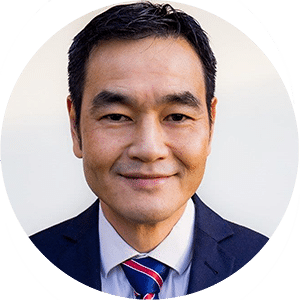The JDRF CRN Symposium 2023 Speakers and Panel Members
International Keynote Speakers
Professor Mark Atkinson, PhD
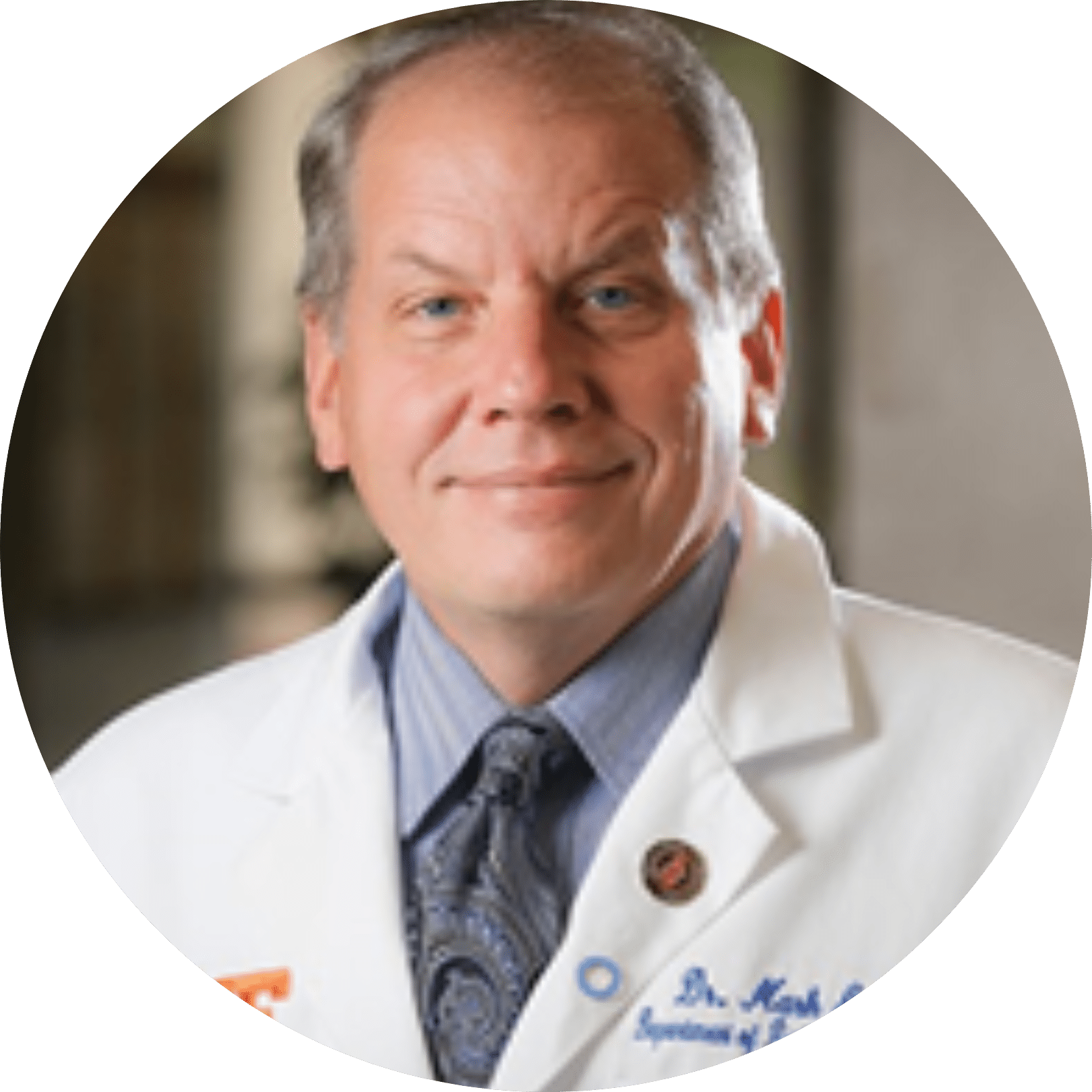
Professor Mark Atkinson is the American Diabetes Association Eminent Scholar for Diabetes Research and the Jeffrey Keene Family Professor at the University of Florida. His research interests are in disease prediction and prevention, the role for environment in the initiation of the disease, stem cells and pancreatic regeneration, the use of animal models in studies of T1D pathogenesis and therapy, and the identification of markers of tolerance and immunoregulation. He has also engaged in leadership service with active administrative or advisory service to JDRF, The American Diabetes Association (ADA), The National Institutes of Health, The Immunology of Diabetes Society. He is currently the Executive Director of the JDRF Network for Pancreatic Organ donors with Diabetes (nPOD) program, and he recently completed his term as Steering Committee Chair of the NIH Human Islet Research Network (HIRN).
Professor Colin Dayan, MA MBBS FRCP PhD

Professor Colin Dayan is a Professor of Clinical Diabetes and Metabolism at Cardiff University School of Medicine. He has a long-established interest in translational research in the immunopathology of T1D and is the lead for diabetes in the Cardiff whole pancreas transplantation program. Prof Dayan currently leads the Clinical Engagement and Training Core of the Diabetes UK funded T1D UK immunotherapy Consortium which aims to coordinate and support combined efforts to bring immunotherapy for T1D into clinical practice and is Chair of the T1D national Prevention and Therapies Clinical Studies Group.
Doctor Leni (Eleanor) Ramos, MD

Dr. Leni (Eleanor) Ramos joined Provention Bio as Chief Medical Officer in 2017. She has over 25 years of drug development experience in biopharma with prior positions as a Chief Medical Officer of Global Blood Therapeutics, a biopharmaceutical company dedicated to developing therapeutics to treat blood-based disorders (acquired by Pfizer); Theraclone Sciences, a antibody discovery and development company focused on therapeutics for viral diseases including severe influenza; and ZymoGenetics, with a portfolio across infectious diseases/hepatitis C, immunology/lupus nephritis, oncology and hemostasis (acquired by Bristol Myers Squibb). Earlier in her career, Leni held clinical development positions at Roche Global Development and Bristol-Myers Squibb, where she supported and led the development of small molecule (mycophenolate mofetil/CellCept) and protein therapeutics (belatacept/Nulojix) in the prevention and treatment of organ transplant rejection. Leni received her medical degree from Tufts Medical School (Boston, Mass) and transplant nephrology training at Brigham and Women’s Hospital (Boston, Mass).
Professor Marian Rewers, MD PhD
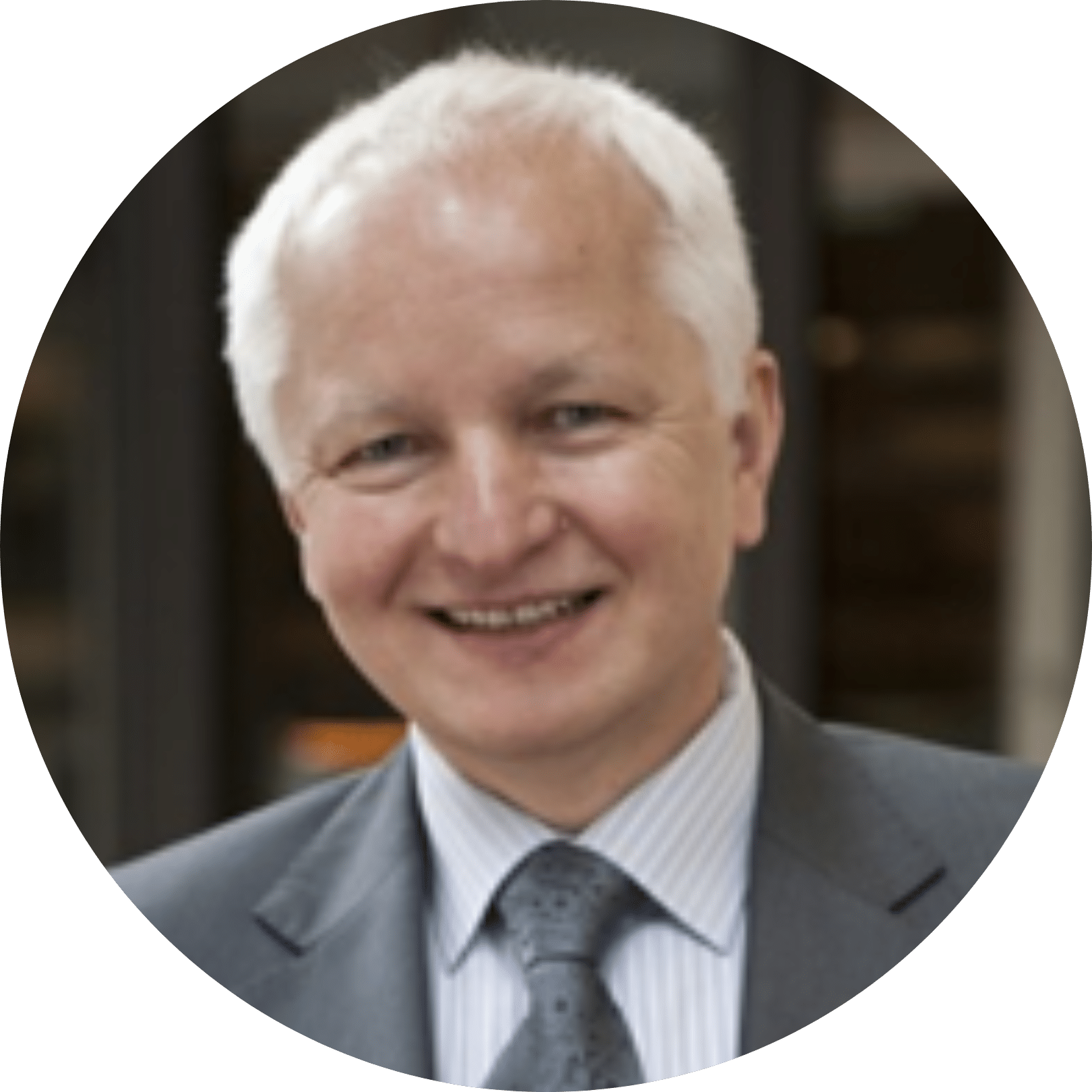
Professor Marian Rewers is the Executive Director at the Barbara Davis Centre for Childhood Diabetes at the University of Colorado and led the Department of Paediatrics and Medicine for 12 years until 2012. His primary research has been in the aetiology and epidemiology of T1D as well as insulin resistance and cardiovascular complications of diabetes. He is the principal investigator of large NIH-funded prospective cohort studies: the Diabetes Autoimmunity Study in the Young (NIDDK/NIAID), The Environmental Determinants of Diabetes in the Young (TEDDY), the Coronary Artery Calcification in Type 1 (CACTI) Study (NHLBI), and the Genetic and Environmental Causes of Celiac Disease (NIDDK).
Keynote Speakers
Professor Jeffrey Braithwaite, BA DipLR MBA MIR (Hons) PhD FIML FCHSM FFPHRCP FAcSS Hon FRACMA FAAHMS

Professor Jeffrey Braithwaite is a leading health services and systems researcher with an international reputation for his work investigating and contributing to systems improvement. He has expertise in the culture and structure of acute settings, leadership, management and change in health sector organisations, quality and safety in healthcare, standards and accreditation, health sector reform in an international context and the restructuring of health services. His most recent work looks at the future of health care to 2030; learning health systems; applying implementation science to health care problems; and health care and its capacity to cope with climate change.
He has professorial appointments at six universities and is the President of the International Society for Quality in Health Care (ISQua). He is an expert for, and advisor to, the WHO, the OECD and research groups around the world.
Professor Joshua Byrnes, PhD MHealthEcon MEcon BEcon BComm

Professor Byrnes is the Director, Centre for Applied Health Economics (CAHE), Griffith University, Australia. He has worked as an academic and consulting health economist since 2011 after he was awarded his PhD in Health Economics from UNSW Sydney. Joshua’s research expertise centres on the design and analysis of studies for the purpose of measuring and demonstrating value in health. He is the Australian past-president of the International Society for Pharmacoeconomics and Outcomes Research, the largest health economics and outcomes research organisation globally. To date he has published over 150 leading scientific journal articles across numerous disciplines. He has significantly impacted and influenced policy, practice and funding decisions in the Australian health system. This has included leading the economic assessment of plain packaging tobacco legislation, pregnancy warning labels on alcohol, opt-out arrangements for the MyHealth Record, price re-negotiation for Statins, and funding for trans-catheter aortic value implantation procedures in Australia.
Professor Mark Cooper, AO MBBS PhD FRACP FAHMS

Professor Mark Cooper is Head of the Diabetes Department in the Central Clinical School at Monash University. He was formerly Chief Scientific Officer, Baker IDI Heart and Diabetes Institute, as well as the Director of Juvenile Diabetes Research Foundation Centre (JDRF) for Diabetes Complications and maintains an active clinical practice at The Alfred as a senior endocrinologist. Professor Cooper’s research interests are in diabetes and its three major complications: kidney disease, heart disease and blindness. His distinguished body of research has led to new treatments for sufferers of diabetes that are today considered standard. He has played a key role in translating exciting discoveries in the laboratory to clinical care with seminal studies defining various treatment strategies to reduce the burden of diabetic complications.
Professor Jenny Couper, MB ChB MD FRACP

Professor Jenny Couper is a practising paediatric endocrinologist. She led the Diabetes and Endocrinology department at WCH, South Australia until 2021 and currently leads the Discipline of Paediatrics, University of Adelaide. Her clinical research has focused on two areas in T1D: the prevention of T1D, and the prevention of cardiovascular complications in children with T1D. She is lead Investigator of the Environmental Determinants of Islet Autoimmunity (ENDIA); an internationally unique study of 1500 children at-risk of T1D who have been followed from pregnancy. She was a co – investigator on INIT I, INIT II, AdDIT, and BANDIT trials and has co-authored International Society of Paediatric and Adolescent Diabetes (ISPAD) and other international guidelines. Jenny is an elected member of the ISPAD Advisory Council.
Professor Shane Grey, PhD
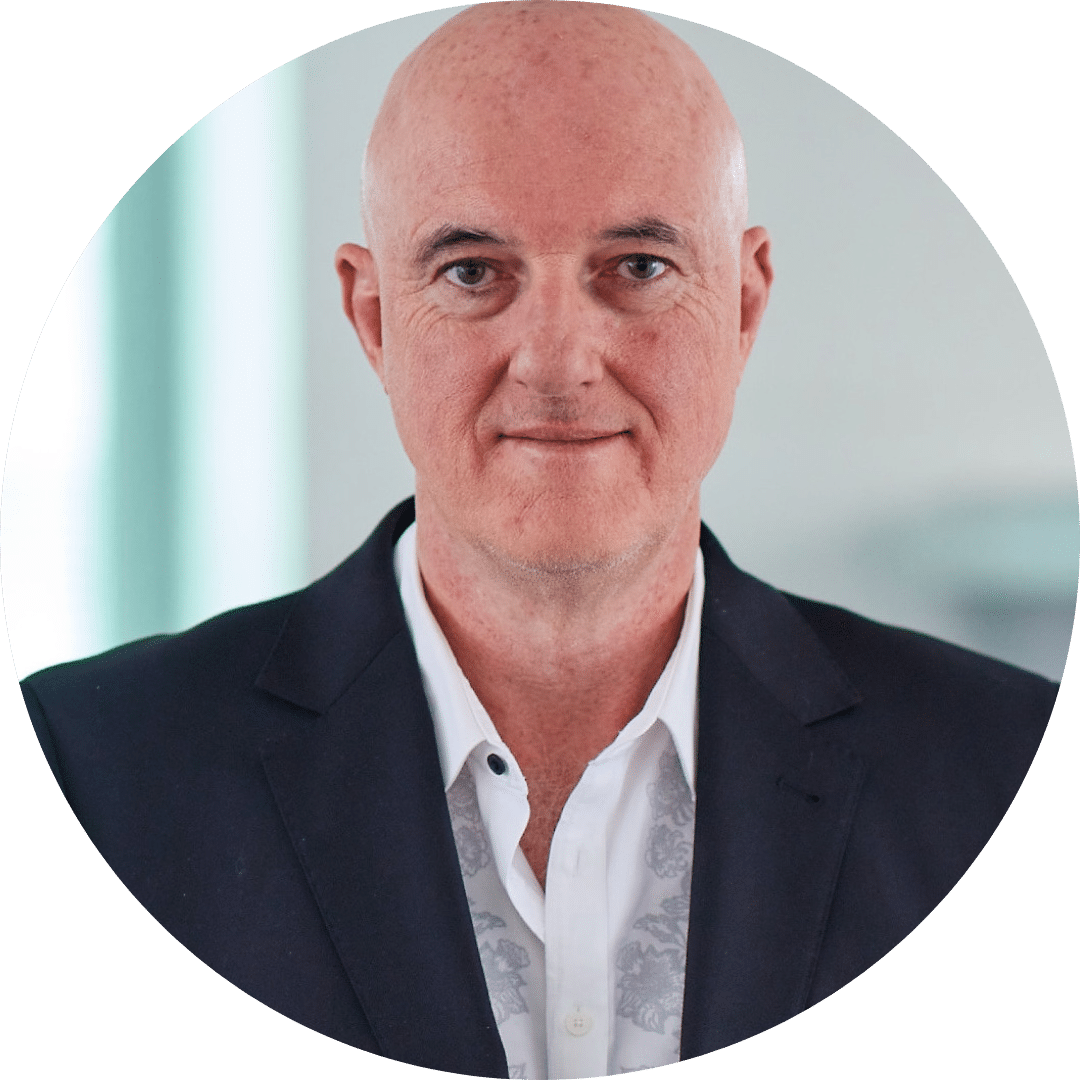
Professor Shane Grey is currently Head of School, Biotechnology & Biomolecular Science, University of New South Wales; and Head of the Transplant Immunology Research team and Director of the Functional Genomics of Type 1 Diabetes Program at the Garvan Institute of Medical Research. He was a lead investigator on Australia’s first clinical islet transplant program and was Program Director of a national NHMRC/JDRF research program for T1D and a founder of the Australian Islet Study Group. Shane received his PhD immunology training at Monash University and completed post-doctoral training as a transplant immunologist at Harvard Medical School, USA. Shane later became involved in T1D and islet transplantation research though the JDRF Islet Transplant Centre at Harvard in the late 1990’s. In 2000 he received a JDRF Career Development Award to establish a research program aiming to understand genetic control of islet and beta cell inflammation and its role in diabetes and islet transplantation which is continuing to this day.
In 2007, Shane was awarded as a Key Opinion Leader (KOL) in transplantation by The Transplantation Society International; a JDRF and Macquarie Group Foundation Diabetes Research Innovation Award JDRF in 2010; and an Australian Transplant Society (TSANZ) award, the “Ian McKenzie Prize” – for outstanding contributions in Transplantation in 2012. Shane has a long history working with JDRF towards a cure for T1D including his own collaborative research and serving as a reviewer and advisor on national and international JDRF panels since the year 2000 – recognised by being awarded two JDRF Mary Jane Kugel Awards.
Professor Timothy Jones, MBBS DCH FRACP MD
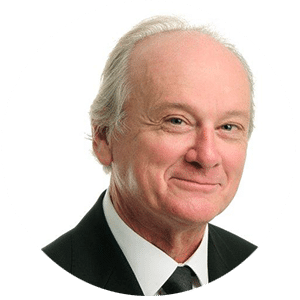
Professor Jones is a Clinical Professor at the University of Western Australia, Area Director of Research for the Western Australian Child and Adolescent Health Service and Co-Director of the Rio Tinto Children’s Diabetes Centre, a JDRF Global Centre of Excellence. He received his paediatric training in Australia and the UK and his post-doctoral training at Yale University, USA. Professor Jones is internationally recognised for clinical investigation and leadership in childhood diabetes, his research has focused on clinical impact and includes hypoglycaemia, diabetes treatments and technologies, exercise and translation. Dr Jones has received numerous grants and awards and, along with Professor Liz Davis, he leads a research team based at the Telethon Kids Institute and Perth Children’s Hospital. Dr Jones maintains a clinical role as Consultant Endocrinologist at Perth Children’s Hospital.
Professor Thomas Kay, MBBS PhD FRACP FRCPA FAAHMS
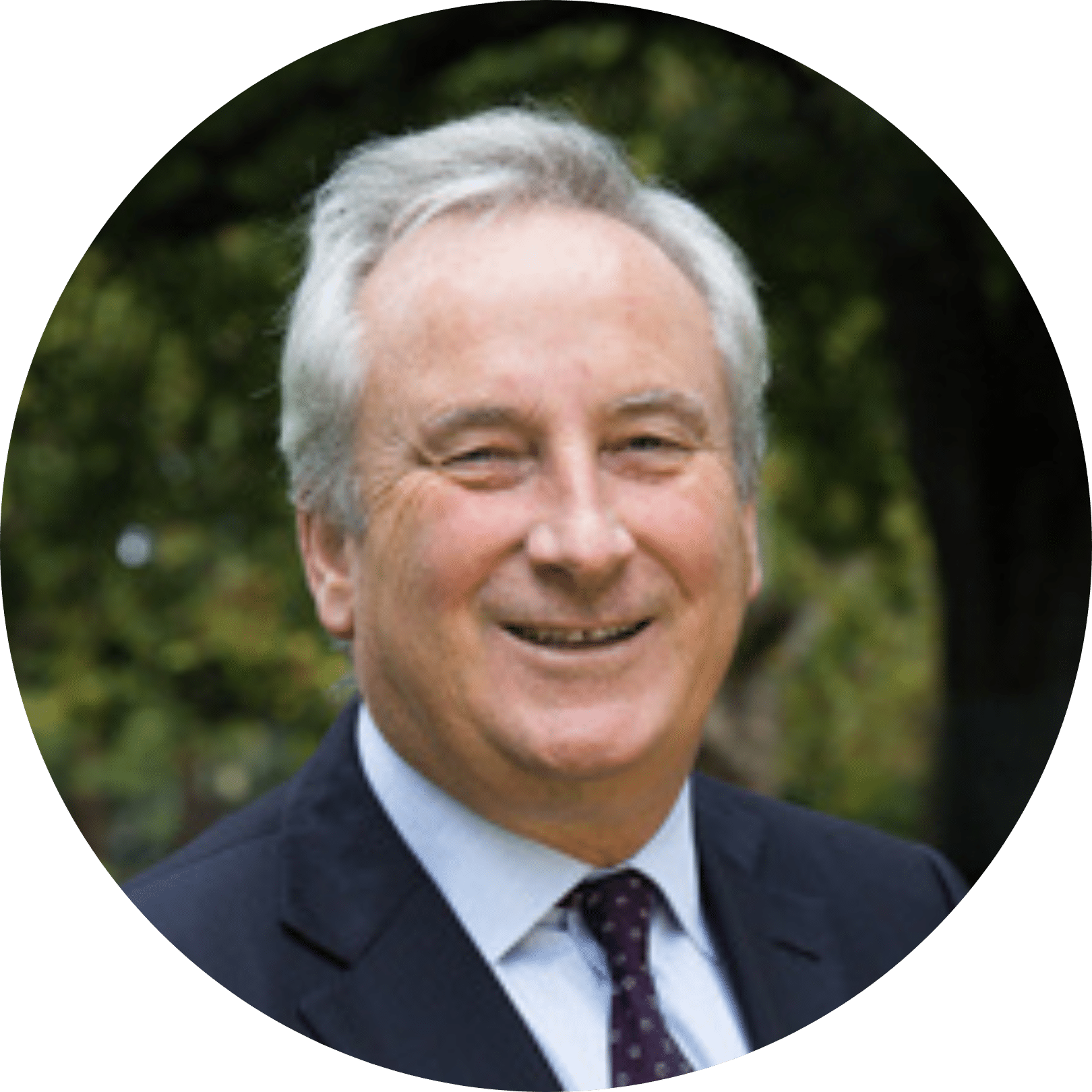
Professor Tom Kay is the Director of St Vincent’s Institute of Medical Research (SVI) in Melbourne, and head of the Tom Mandel Islet Transplant Program and Chief Investigator of the BANDIT clinical trial and the JDRF Australasian T1D Immunotherapy Collaborative (ATIC). He is an Honorary Professorial Fellow at the University of Melbourne and is a clinician-scientist with expertise in endocrinology and clinical immunology. His work focuses on islet transplantation and immunotherapy with the aim to challenge insulin replacement therapy for diabetes by introducing new treatments based on disease mechanisms.
Professor Louise Maple-Brown, MBBS PhD FRACP

Professor Louise Maple-Brown is a Senior Endocrinologist at the Royal Darwin Hospital (NT, Australia), Deputy Director Research and Senior Principal Research Fellow at Menzies. Louise has been providing clinical diabetes services to urban and remote NT communities for over 20 years. She is a current member of the NT Clinical Senate. Louise established and leads the Diabetes across the Lifecourse: Northern Australian Partnership. The partnership includes several large NHMRC-funded projects, including The PANDORA (Pregnancy And Neonatal Diabetes Outcomes in Remote Australia) Cohort Study. In 2020 Louise was awarded the Australian Diabetes Society Ranji and Amara Wikramanayake clinical Diabetes Mid-Career Research award and in 2021. She is a Fellow of the Australian Academy of Health and Medical Sciences.
Professor Natasha Rogers, MBBS (Hons) PhD FRACP FASN

Natasha Rogers is a Senior Staff Specialist at Westmead Hospital where she is Head of Transplantation and Director of the Clinical Islet Transplant Program. She is Professor of Nephrology and Transplantation Medicine at the University of Sydney, where she is a NHMRC Emerging Leader Fellow, and is Deputy Director of the Centre for Transplant and Renal Research at the Westmead Institute for Medical Research. She runs the Kidney Injury Group, which focuses on molecular mechanisms of acute and chronic kidney injury, as well as translation of findings into clinical practice. Her team performed the first machine perfusion-treated kidney transplant in Australia in 2021, and she currently leads a multi-centre islet transplant trial that uses novel immunosuppression therapy. Her research has attracted >$5 million in fellowships and grants from the American Heart Association, NHMRC, MRFF, National Heart Foundation and Diabetes Australia. She is currently Chair of the Scientific Program Committee for the ANZ Society of Nephrology and the international Transplantation Society Scientific Committee.
Professor Jane Speight, MSc PhD CPsychol FBPsS
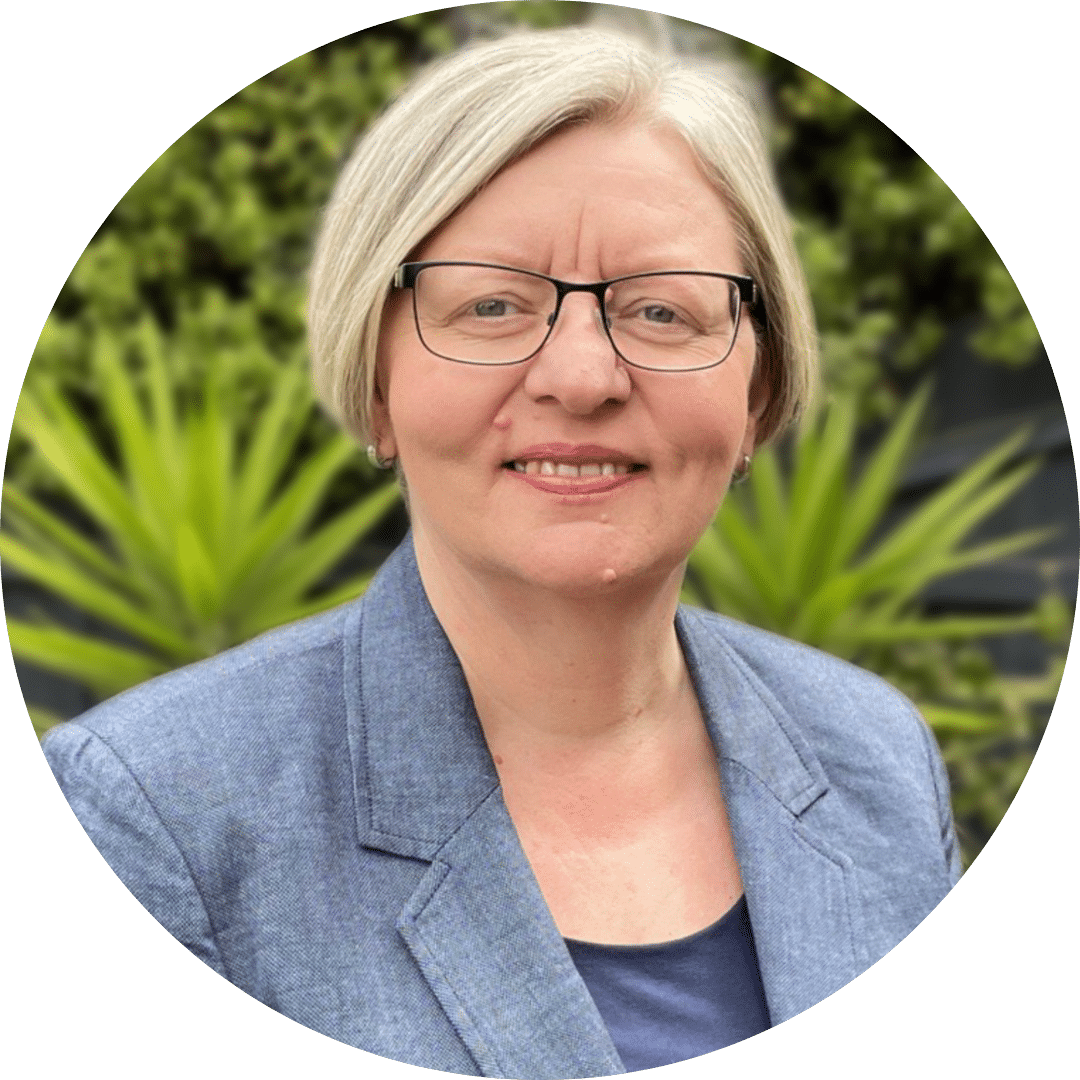
Jane is the Foundation Director of The Australian Centre for Behavioural Research in Diabetes, established in 2010 as a partnership between Diabetes Victoria and Deakin University. Jane is a health psychologist who has specialised in diabetes for 25 years. Her research interests focus broadly on understanding and reducing the psychosocial and behavioural burden of type 1 diabetes and its management, including the benefits and challenges of modern glycaemic technologies, and optimising support and self-care to improve both health and quality of life. According to ExpertScape, among worldwide researchers, Jane ranks in the top 0.1% for type 1 diabetes, and she is Australia’s leading behavioural diabetes researcher. Since 2020, Jane has been Chair of the international PsychoSocial Aspects of Diabetes (PSAD) Study Group, a global network of 300+ professionals focused on these issues. In 2018, Jane’s profile was published in Lancet Diabetes & Endocrinology; and then, in 2019, included in The Lancet’s virtual collection: Profiles of Women Leaders.
Rapid Fire Presentations
Doctor Kirstine Bell , APD CDE PhD

Doctor Kirstine Bell is a Senior Research Fellow at the Charles Perkins Centre, University of Sydney and is the Principal Research Fellow leading the Australian T1D National Screening Pilot (JDRF-Australia & JDRF-International, 2020-24), a national feasibility, acceptability and cost-effectiveness program to determine the optimal method for a routine, publicly funded national screening program for all Australian children. She is co-first author on the 2022 ISPAD Clinical Practice Consensus Guideline: Stages of T1D in children and adolescents.
Associate Professor Emma Hamilton-Williams, PhD

Associate Professor Emma Hamilton-Williams’ career focuses on understanding how immune tolerance is disrupted leading to the development of the autoimmune disease type 1 diabetes. She received her PhD from the Australian National University and trained as a postdoctoral fellow in Germany and the USA. In 2012 she started a laboratory at the Frazer Institute, University of Queensland with funding from the Juvenile Diabetes Research Foundation and NHMRC grants. Currently an Associate Professor, her laboratory focuses on understanding the role of the gut microbiota as a potential trigger or therapy for type 1 diabetes as well as developing new immunotherapies for type 1 diabetes. She is studying microbiome development in children at-risk of type 1 diabetes starting from pregnancy through infancy and childhood, to understand how lifestyle and diet interact with the microbiome as risk factors for disease progression. She recently conducted a clinical trial of a microbiome-targeting dietary supplement aimed at restoring a healthy microbiome in T1D. Her laboratory uses state-of-the-art ‘omics’ technologies and microbiome transplant studies to develop new interventions prevent or halt this disease.
Doctor Ki Wook Kim, BSc (Hons) PhD

Doctor Ki Wook Kim is a JDRF Career Development Fellow based at UNSW. Dr Kim completed his undergraduate degree, Honours and PhD in Molecular Biology and Genetics at USYD. Since 2015, Dr Kim has focused his research on the viral aetiology of T1D and human viromics (characterising all viruses infecting humans). He leads the Human Viromics research group within the UNSW-affiliated Virology Research Laboratory (Prince of Wales Hospital) and co-leads the Virology theme within the nationwide ENDIA study.
Associate Professor John Wentworth, MBBS (Hons) PhD FRACP

Associate Professor John Wentworth is a clinician-scientist who seeks to develop better ways to diagnose type 1 diabetes early and prevent its progression to insulin dependence. He leads several local and multinational clinical trials, including Type1Screen, TrialNet, JDRFA General Population Screening Pilot study, Environmental Determinants of Diabetes (ENDIA) Study and several immunotherapy studies for the newly formed national trial network called ATIC.
Hot Topic Presenters
Doctor Irina Buckle, PhD

Dr Buckle is an immunologist in Prof Josephine Forbes Laboratory at Mater Research Institute in Brisbane. She focuses on the development of the disease modifying therapies for T1D specifically focusing on the receptor for advanced glycation end products (RAGE). During her PhD under the mentorship of A/Prof Hamilton-Williams, Prof Ranjeny Thomas and A/Prof Raymond Steptoe Dr Buckle worked towards development of antigen-specific immunotherapy for T1D in pre-clinical models. This approach is currently being translated for human use.
Doctor Andrew Sutherland, PhD

Andrew is a Senior Research Officer in Immunology at St Vincent’s Institute of Medical Research (SVI). His research endeavours are centred around immune tolerance and the development of novel immune therapies for type 1 diabetes and other autoimmune conditions. His primary focus lies in understanding the regulatory mechanisms governing the activities of effector and regulatory T cells (Tregs) in the context of type 1 diabetes and recent investigations have identified significant contributions of IL-17 family receptors to the pathogenesis of type 1 diabetes in preclinical models.
Professor Helen Thomas, BSs PhD

Professor Helen Thomas BSs PhD is head of the Immunology and Diabetes Unit at St Vincent’s Institute in Melbourne. Her research is focused on prevention of type 1 diabetes. She aims to protect the insulin-producing cells in the pancreas from being destroyed by both the immune system and the stress that diabetes places on these cells. Her work is being applied to humans through the transplantation of islets isolated from organ donors by the Tom Mandel Islet Transplant Program in Victoria to reverse type 1 diabetes in severe cases. She has also developed collaborations with industry to test immune suppressive drugs, in particular JAK inhibitors, in clinical trials for type 1 diabetes.
Professor Ranjeny Thomas, MD FRACP MBBS

Ranjeny is a Professor of Rheumatology at The University of Queensland’s Frazer Institute, Translational Research Institute, consultant Rheumatologist at Princess Alexandra Hospital and fellow of the Australian Academy of Health and Medical Sciences and member of the Order of Australia. She founded two Uniquest spin-off companies Dendright (2006-2021), and Liperate in 2022. Her research is focused on the study of autoimmune disease and restoration of tolerance. Through this work, she developed dendritic cell-based citrullinated antigen-specific immunotherapy in the first proof-of-concept trial in Rheumatoid Arthritis. She developed a liposome immunotherapy that targets dendritic cells to induce antigen-specific tolerance, opening new opportunities for the control and prevention of autoimmune disease. She has also contributed major insights into the pathogenesis of spondyloarthropathy and autoimmune diabetes. She is funded by the Juvenile Diabetes Research Foundation and the Helmsley Foundation to develop antigen-specific immunotherapy for children with type 1 diabetes.
Pechakucha Presentations
Professor Sam El-Osta, PhD
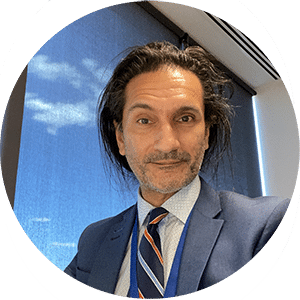
Professor El-Osta is an epigeneticist, dedicated to understanding health and disease. Professor El-Osta’s laboratory has contributed to understanding the molecular mechanisms whereby epigenetic changes exert positive and negative transcriptional functions in specific model systems. His team explores the relationship between different classes of co-repressor and activator complexes and the regulation of chromatin remodelling events in maintaining gene expression implicated in disease. He has contributed more than 200 articles and publishes research that is highly influential in the field of transcription and chromatin biology. In recognition of his research into epigenetics, he was awarded AMGEN Australian Medical Researcher of the Year in 2006 by the ASMR Australian Society for Medical Research.
Professor Anandwardhan Hardikar, MSc PhD
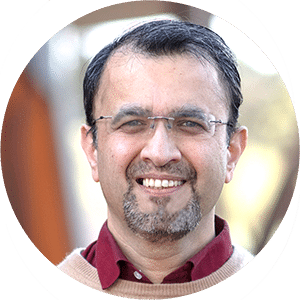
Anandwardhan Hardikar is a Professor at Western Sydney University. His research areas include molecular biomarkers of T1D progression, islet cell biology, and epigenetics. He has over two decades of research experience in human islet cell biology and is currently leading the Diabetes & Islet Biology group at Western Sydney University. He is a visiting Professor at Steno Diabetes Centre Copenhagen and the Roskilde University Denmark, and also the vice president of Islet Society, Sweden. Anand was awarded the Australian Future Fellowship by the Australian Research Council (ARC) in 2012 and held the Juvenile Diabetes Research Foundation (JDRF) Australia clinical research network (CRN) fellowship from 2016-22. His current focus (funded through NHMRC & JDRF) is to develop hands-on diagnostics to enhance T1D risk prediction.
Ms Jacqueline Scaffidi, PhD candidate

Jacqueline is a medical researcher and PhD candidate from the University of Adelaide in the cellular therapy field. She has always had a passion for Immunology and utilising the immune system to treat various autoimmune diseases. Jacqui’s research focuses on the pre-clinical investigation of CAR-T regulatory cells (T regs) as a cellular therapy for Type 1 Diabetes (T1D).
Doctor Jacqueline Schiesser, BBiomedSci (Hons) PhD
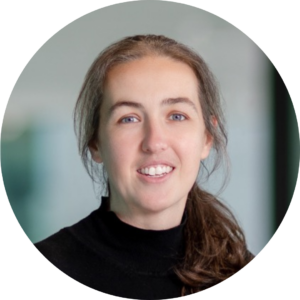
Dr. Jacqueline Schiesser is a senior research officer at the Murdoch Children’s Research Institute. She completed her PhD in 2013 studying human stem cell differentiation and pancreatic development. Following this, Dr Schiesser undertook postdoctoral studies in the laboratory of James Wells at Cincinnati Children’s Hospital Medical Center. Her current research focuses on the utilization of stem cell models of type 1 diabetes.
Professor Peter Thorn, PhD
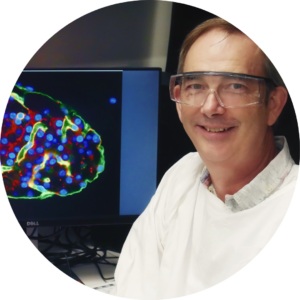
Peter Thorn is a Professor at University of Sydney and Chair of Molecular and Cellular Physiology, running his own research group ‘thorn lab’. Thorn lab uses cutting-edge microscopy, transgenic and molecular approaches to understand how insulin secretion is regulated in health and disease. Their latest work suggests that insulin secretion from pancreatic beta cells is controlled through synaptic-like connections with the blood vessels of the islet.
Panel Members
(not listed elsewhere)
Doctor Gina Agiostratidou, PhD MBA
 Gina is currently the Program Director for the Helmsley Charitable Trust’s Type 1 Diabetes (T1D) Program as well as its New York City (NYC) program.
Gina is currently the Program Director for the Helmsley Charitable Trust’s Type 1 Diabetes (T1D) Program as well as its New York City (NYC) program.
Gina earned a Ph.D. in molecular biology from the Medical School, National and Capodistrian University of Athens, Greece, a M.Sc. degree in advanced molecular biology and biotechnology at the University of London, UK, and an M.B.A. from New York University’s Stern Business School (2010). She completed two post-doctoral fellowships at Albert Einstein College of Medicine and Mount Sinai School of Medicine, focusing primarily on molecular biology and biochemistry.
Through Gina’s leadership, the T1D program supports the global T1D community to live safer, better, and more fulfilling lives today while funding advancements in research and technology for a better tomorrow.
Professor Stephen Alexander, MD MPH

Stephen Alexander is a professor at University of Sydney Paediatrics & Child Health, based at the Children’s hospital at Westmead. His clinical and research interests are Child Health, Immune tolerance, immunology, nephrology and transplantation. Work in his laboratory is currently focused on targeting Regulatory T cells for the treatment of idiopathic membranous nephropathy, developing gene therapy for rare genetic kidney disease and cell and gene immunotherapy via T lymphocyte engineering targeted to the kidney. He works closely with the islet transplant group at WIMR.
Professor Simon Barry, PhD

Professor Simon Barry is a molecular biologist studying the basis of immunological defects giving rise to autoimmune diseases such as type 1 diabetes. His research focus is in regulatory T cells (the policemen of the immune system), aiming to understand what genes drive their formation and their normal function with a view to developing novel cell and drug-based therapies and diagnostic biomarkers. He has developed a collaborative research program in the discipline of Paediatrics at the University of Adelaide which has both a basic science and a translational component, allowing him to undertake gene discovery and functional validation in vitro and then access human clinical material to determine whether there is a causal link with disease.
Professor Fergus Cameron, BMedSci MBBS DipRACOG FRACP MD
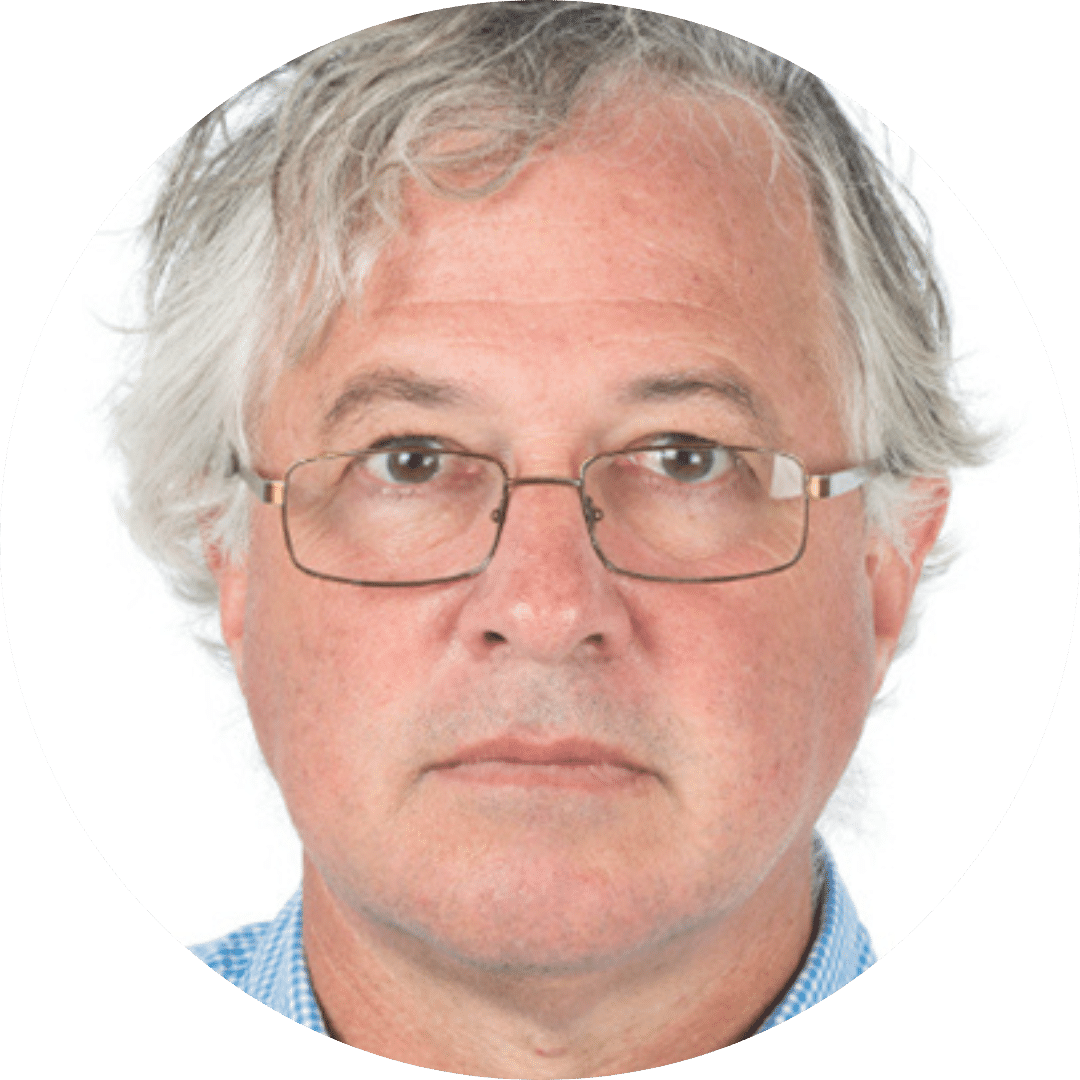
Professor Fergus Cameron is the Director of the Department of Endocrinology and Diabetes at the Royal Children’s Hospital, Melbourne. He is also Head of the Diabetes Research Group at the Murdoch Children’s Research. He has published widely in the medical and lay literature about matters regarding endocrine and diabetes management. His particular interests are the impacts of type 1 diabetes upon central nervous system development, biological/immune disease modification and psychosocial aspects of care. He is a past council member of the International Society for Paediatric and Adolescent Diabetes, a past president of the Australasian Paediatric Endocrine Group and is a participant in the Hvidoere Study Group on Childhood Diabetes. He is a Deputy Editor of the Journal Pediatric Diabetes.
Professor Maria Craig, MB BS MMedSc PhD FRACP

Maria Craig is Professor of Paediatric Endocrinology, The Children’s Hospital at Westmead and Principal Investigator, and Academic co-leader of Charles Perkins Centre Westmead. Her research focus is childhood diabetes, including studies focused on prediction and prevention of type 1 diabetes. Professor Craig’s major interest is in the association between viruses and type 1 diabetes, in collaboration with the Virology Research Group at POWH, headed by Professor Bill Rawlinson. Together, they lead the viral theme for the multicentre ENDIA study (endia.org.au). She is principal investigator of the CoRD trial – a world first phase 1 study using autologous cord blood for prevention of type 1 diabetes in children with islet autoimmunity. Other research interests include the epidemiology of childhood and diabetes complications.
Ms Melanie Cullen, BPsych Grad Cert PDCE

Melanie leads the Insulin Pump Program and Mental Health Programs at JDRF Australia. Her 18-year-old son Will has type 1 diabetes. As a psychologist working in youth health when her son was diagnosed at 2 years old, Melanie made the transition about 12 months later to specialise as a paediatric psychologist started working at a diabetes service. In this role for over 10 years along with maintaining her own private practice, Melanie came to work at JDRF Australia in 2018. Combining both her personal and professional knowledge, Melanie is able to share many insights and helpful tips for parents of children and teens living with T1D.
Professor Kim Donaghue, MBBS PhD FRACP

Professor Kim Donaghue, is currently Staff Endocrinologist at the Children’s Hospital at Westmead; and holds a Conjoint Appointment at the University of Sydney. Her major research foci have been the pathogenesis and intervention for Diabetes Complications and evidence-based medicine with over 200 peer reviewed publications. She received the Norman Wettenhall Medal for Research and Innovation from the Australasian Paediatric Endocrine Group (APEG) (2015), Lifetime Achievement Award from the Australian Diabetes Society (2022) and the 2022 Prize of Achievement from the International Society for Pediatric and Adolescent Diabetes (ISPAD). She has served as elected President of both ISPAD (2018-20), and APEG (2001-3). She is currently a consultant for the WHO Handbook of Common Childhood Diseases (in Diabetes).
Ms Christine Garberg

Christine is a mum to a son with T1D and is the Chairperson of the JDRF Lay Review Panel (LRP). She provides leadership to the LRP, acts as a JDRF spokesperson on consumer issues/perspective, and liaisons with the chairperson of the Professional Advisory Panel and the CEO to develop advice for the Board. Christine is interested in research focused on mental health, gut biome and the use of technology that can improve the lives of individuals and families living with Type 1.
Professor Edwin Kirk, AM MBBS PhD FRACP FRCPA FFSc (RCPA)

Professor Edwin Kirk is a clinical geneticist at Sydney Children’s Hospital, and a genetic pathologist at NSW Health Pathology’s Randwick Genomics Laboratory and a writer. He is co-lead of the Mackenzie’s Mission carrier screening project, and reproductive genetic carrier screening is a major research focus. Other research interests include congenital heart disease and the causes of intellectual disability. Professor Kirk is the author of the popular science book “The Genes That Make Us: human stories from a revolution in medicine”, (published in the Northern Hemisphere with the title “The Boy Who Wasn’t Short”).
Professor Fabienne Mackay, PhD FAHMS FQAAS

Professor Fabienne Mackay is the Director and CEO of QIMR Berghofer Medical Research Institute. She joined QIMR Berghofer in May 2020, having been the inaugural Head of the School of Biomedical Sciences and Head of the Department of Pathology in the Faculty of Medicine, Dentistry and Health Sciences, at the University of Melbourne since 2015.
Professor Mackay studied Medicine and Biomedical Engineering before obtaining her PhD in Molecular Biology and Immunology from Louis Pasteur University in Strasbourg, France. She started her research career in the biotech industry at Biogen Inc. in Boston. In 1999, she joined the Garvan Institute in Sydney as Director of the Autoimmunity Research Unit, and in 2009 she was recruited as Head of the Department of Immunology at Monash University.
Professor Mackay was elected as a Fellow of the Australian Academy of Health and Medical Sciences (AAHMS) in 2016. She is a Council member of AAHMS, Board member of AAMRI, Board member of JDRF, and a member of the NHMRC Research Committee.
Her major research interest relates to autoimmune diseases such as lupus and leukemia.
Doctor Andrew Sutherland, PhD

Head of Healthcare Public Policy, AWS, APAC. Dr Sutherland’s Career in Healthcare spans 35 years. In his current role Andrew has responsibility for Healthcare Policy, supporting AWS public policy teams across the APAC region. He is an ARCS Australia Board Member and is Vice Chair of the MTAA Connected Health Advisory Group and Co-Chair if the US-ASEAN Business Council Digital Health Committee
Doctor John J Males, MBBS BSc (Med) MMed FRANZCO

John is an Ophthalmologist at St Vincent’s Hospital, Liverpool Hospital, and Concord Hospitals in Sydney. Additionally, John is a valued member of JDRFs research subcommittee which he joined in 2018. He understands the challenges faced by families affected by type 1 diabetes as he is father to two children now aged 17 and age 22 were diagnosed with type 1 diabetes at the ages of 5 and 10, respectively.
Doctor Benj Nash, MBBS (Hons), BPharm (Hons)
 Ben is a Melbourne-based Endocrinology Fellow with roughly two decades of personal experience living with T1D. He is currently working with the University of Melbourne, Austin Health, Victorian Virtual ED, RFDS and Ambulance Victoria to improve access to urgent diabetes care regardless of geography. His lived experience has also fostered a passion for diabetes technology and how it will shape future care.
Ben is a Melbourne-based Endocrinology Fellow with roughly two decades of personal experience living with T1D. He is currently working with the University of Melbourne, Austin Health, Victorian Virtual ED, RFDS and Ambulance Victoria to improve access to urgent diabetes care regardless of geography. His lived experience has also fostered a passion for diabetes technology and how it will shape future care.
Professor Philip O’Connell, MBBS BSc(Med) PhD FRACP FAHMS
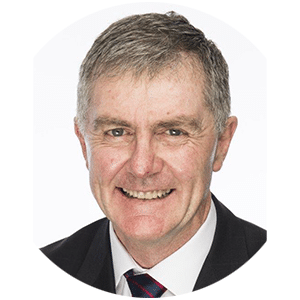 Professor Philip O’Connell is Executive Director of the Westmead Institute for Medical Research. Prior to taking up this appointment in 2020, he was Director of Transplantation, University of Sydney at Westmead Hospital. He is director of the Centre for Transplant and Renal Research and a Fellow of the Australian Academy of Health and Medical Sciences. His research interests include the use of genomics for the development of biomarkers of renal allograft dysfunction and biomarker enrichment for clinical trials in renal transplantation. He undertook Australia’s first successful trial of Pancreatic Islet Transplantation in unstable diabetes and is founding Director of the Australian Clinical Islet Transplant Consortium. He is a past president of The Transplantation Society and a member of the WHO Task Force on Donation and Transplantation. Professor O’Connell’s research is funded by the National Health and Medical Research Council of Australia.
Professor Philip O’Connell is Executive Director of the Westmead Institute for Medical Research. Prior to taking up this appointment in 2020, he was Director of Transplantation, University of Sydney at Westmead Hospital. He is director of the Centre for Transplant and Renal Research and a Fellow of the Australian Academy of Health and Medical Sciences. His research interests include the use of genomics for the development of biomarkers of renal allograft dysfunction and biomarker enrichment for clinical trials in renal transplantation. He undertook Australia’s first successful trial of Pancreatic Islet Transplantation in unstable diabetes and is founding Director of the Australian Clinical Islet Transplant Consortium. He is a past president of The Transplantation Society and a member of the WHO Task Force on Donation and Transplantation. Professor O’Connell’s research is funded by the National Health and Medical Research Council of Australia.
Professor William Rawlinson AM FAHMS MBBS BSc (Med) PhD (Cantab) GCM FRACP FRCPA FASM FFSc
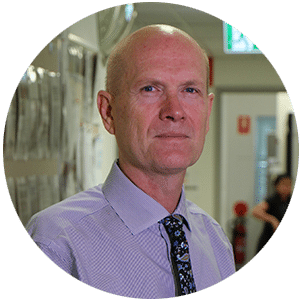
Professor William Rawlinson is Director of the Serology and Virology Division (SAViD), Director Organ and Tissue Donor screening laboratory, Director NSW State Reference Laboratory for HIV, Chair Biosecurity Quality Assurance Program (QAP) RCPAQAP, Deputy Chair Serology Quality Assurance Program (QAP) RCPAQAP, Chair WHO National Verification Committee for Measles and Rubella, and past Chair NSWMOH COVID19 Expert Reference Panel. He is a clinician scientist researching viral pathogenesis, particularly herpesviruses, respiratory viral infections, congenital infections, and enteroviruses in type 1 diabetes mellitus. He established, and oversees, serology and virology clinical research programs, statewide transplant donor screening, and national quality programs for serology and biosecurity. He is conjoint professor at UNSW with over 600 publications, H-index of 83 and over 25,000 citations from his publications in basic research, diagnostic and clinical virology. He is a member/Chair of national health organisations including the Public Health Laboratory Network, the Communicable Diseases Genomics Network, and Expert Review Panels in Molecular Biology, Serology and Whole Genome Sequencing (WGS).
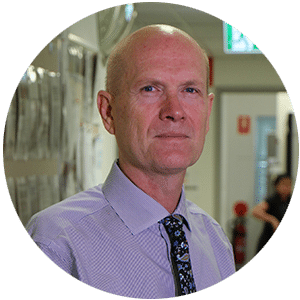
Mr Jonathan Salmon

Jonathan is a customer-centric, technology and business strategist drawing on years of experience managing his own IT services business. As a father of a 14 year old son with type 1 diabetes who was diagnosed at 18 months old, Jonathan understands the challenges faced by families. Since 2012, Jonathan has sat on the Board of Directors for JDRF Australia. In 2022, Jonathan became Chair of the JDRF Research Subcommittee.
Ms Renza Scibilia

Renza Scibilia has lived with type 1 diabetes since 1998. She is Director of Community Building and Communications in the Global Team at JDRF. She has worked for diabetes organisations for the last twenty-one, promoting a person-centred approach to the development, design and delivery of diabetes technologies, services, resources, research and education programs. Renza is also the Global Head of Advocacy for #dedoc°, a European-based organisation which provides opportunities for diabetes advocates from across the world to attend professional conferences under the banner #NothingAboutUsWithoutUs. Renza has extensive experience as a consultant, facilitator, presenter, and media spokesperson.
Moderators
(not listed elsewhere)
Doctor Mary Abraham

Dr Mary Abraham is a Senior Research Fellow and the Technology Research Theme Lead at the RIO Tinto Childrens’ Diabetes Centre, Telethon Kids Institute. Dr Abraham is a lecturer at the School of Paediatrics and Child Health, University of Western Australia since 2015 and has been a Paediatric Endocrinologist at the Perth Children’s Hospital since 2012.
As a clinician researcher, Dr Abraham has a strong research interest in the field of hypoglycaemia and type 1 diabetes. Her areas of research expertise include type 1 diabetes, hypoglycaemia, insulin pump therapy and continuous glucose monitoring. She has been involved with technology trials in type 1 diabetes and conducted the in-clinic and home studies testing the Predictive Low Glucose Management (PLGM) System in the prevention of hypoglycaemia which formed her PhD. She has been subsequently involved in multiple closed loop trials. For her study into the use of oral insulin in type 1 diabetes, in 2022, Dr Abraham was awarded the prestigious Australian Diabetes Society (ADS) Lindsey Baudinet Rising Star Award in T1D Research.
Professor Toby Coates, AO MBBS PhD FRACP
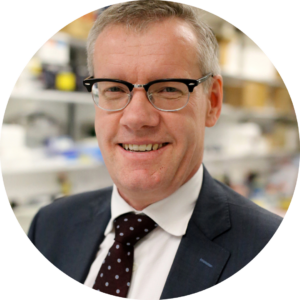 Professor Toby Coates AO is a full time clinician-scientist in the Central Northern Adelaide Renal and Transplantation Service at the Royal Adelaide Hospital and Renal Transplant Nephrologist, Clinical Professor in Medicine at the University of Adelaide. He is the Director of Kidney and Pancreas Islet Transplantation at the Royal Adelaide Hospital. Toby’s research interests are in basic immunology, translational clinical kidney/pancreas islet transplantation and experimental immunosuppression. His group started the Islet Transplant program in Adelaide for T1D in 2006 as members of the Australian Islet Consortium, performed Australia’s first paediatric islet auto-transplant in 2015, established Australia’s first steroid-free pancreas transplant program in 2018 and pioneered development for alternative sites for islet cell transplantation through his startup company Beta Cell Technologies. In 2022 his group was awarded the Ministers Health and Innovation in the 2022 SA Health Awards.
Professor Toby Coates AO is a full time clinician-scientist in the Central Northern Adelaide Renal and Transplantation Service at the Royal Adelaide Hospital and Renal Transplant Nephrologist, Clinical Professor in Medicine at the University of Adelaide. He is the Director of Kidney and Pancreas Islet Transplantation at the Royal Adelaide Hospital. Toby’s research interests are in basic immunology, translational clinical kidney/pancreas islet transplantation and experimental immunosuppression. His group started the Islet Transplant program in Adelaide for T1D in 2006 as members of the Australian Islet Consortium, performed Australia’s first paediatric islet auto-transplant in 2015, established Australia’s first steroid-free pancreas transplant program in 2018 and pioneered development for alternative sites for islet cell transplantation through his startup company Beta Cell Technologies. In 2022 his group was awarded the Ministers Health and Innovation in the 2022 SA Health Awards.
Professor Elif Ekinci, MBBS, FRACP, PhD

Professor Elif Ekinci consults on diabetes and endocrinological problems including Type 1 and Type 2 diabetes, osteoporosis, PCOS, thyroid, pituitary and adrenal disease. She is a clinician scientist, an academic endocrinologist who is working to translate research into improved outcomes for people with Type 1 and Type 2 diabetes. Her research is focused on the pathophysiology, prevention, detection and treatment of diabetes and its complications in humans. She does this by undertaking observational studies and clinical trials.
Professor Josephine Forbes, PhD

Prof Josephine Forbes is a translational researcher performing bench to bedside studies on novel therapies to prevent type 1 diabetes and a major complication, kidney disease. Currently she based at Mater Research – The University of Queensland in Australia. Josephine is the Australian Diabetes Society President-Elect, the previous chair of the Diabetes Australia Research Program and an editor board member for journals including Kidney International. She is also continually in the top 2% of scientists globally as published annually by Stanford University, with an H index of 61. Josephine has published ~200 research articles with >15000 citations and three patents. She has received numerous prizes for her research including the Commonwealth Health Minister’s Award for Excellence in Health and Medical Research in Australia.
Doctor Aveni Haynes, BA (Hons) MBBChir PhD

Doctor Aveni Haynes is a Senior Research Fellow based at the Telethon Kids Institute in Perth where she leads the epidemiology research theme in the Children’s Diabetes Centre. She is an Investigator and the Epidemiology/Toxicology theme leader in the Australia-wide Environmental Determinants of Islet Autoimmunity (ENDIA) pregnancy early-childhood type 1 at risk cohort study (www.endia.org.au), in which she also leads a sub-study to identify early changes in glucose levels using continuous glucose monitoring (CGM). Additional active leadership roles include being a scientific steering committee member of the Western Australian ORIGINs pregnancy birth cohort study, member of the ANZSPED/AIHW diabetes registry committee, Australasian Type 1 Diabetes Immunotherapy Trials Collaborative (ATIC) and an investigator in the 2021-2025 JDRF Global Centre of Excellence based in Perth focussed on improving lives of individuals living with type 1 diabetes.
Associate Professor Stuart Mannering, BSc PhD
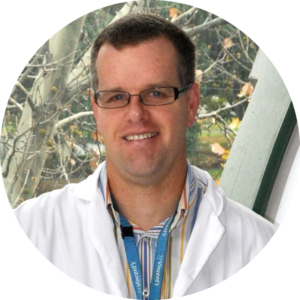
A/Prof Stuart Mannering is Head of Human Immunology Laboratory at St Vincent’s Institute. His research seeks to understand ‘how and why’ human T cells cause type 1 diabetes. Specifically, he is interested in identifying the antigens are ‘seen’ by autoreactive T cells and why those structures are recognised by auto-pathogenic human T cells. How a T cell responds to a particular antigen changes the resulting immune response. His work seeks understanding of what affects T cell function and to develop assays to detect autoantigen-specific T cells and analyse their function in vitro. Stuart received the JDRF Pilot and Innovation Award in 2021.
Doctor Megan Penno, BSc (Hons) PhD
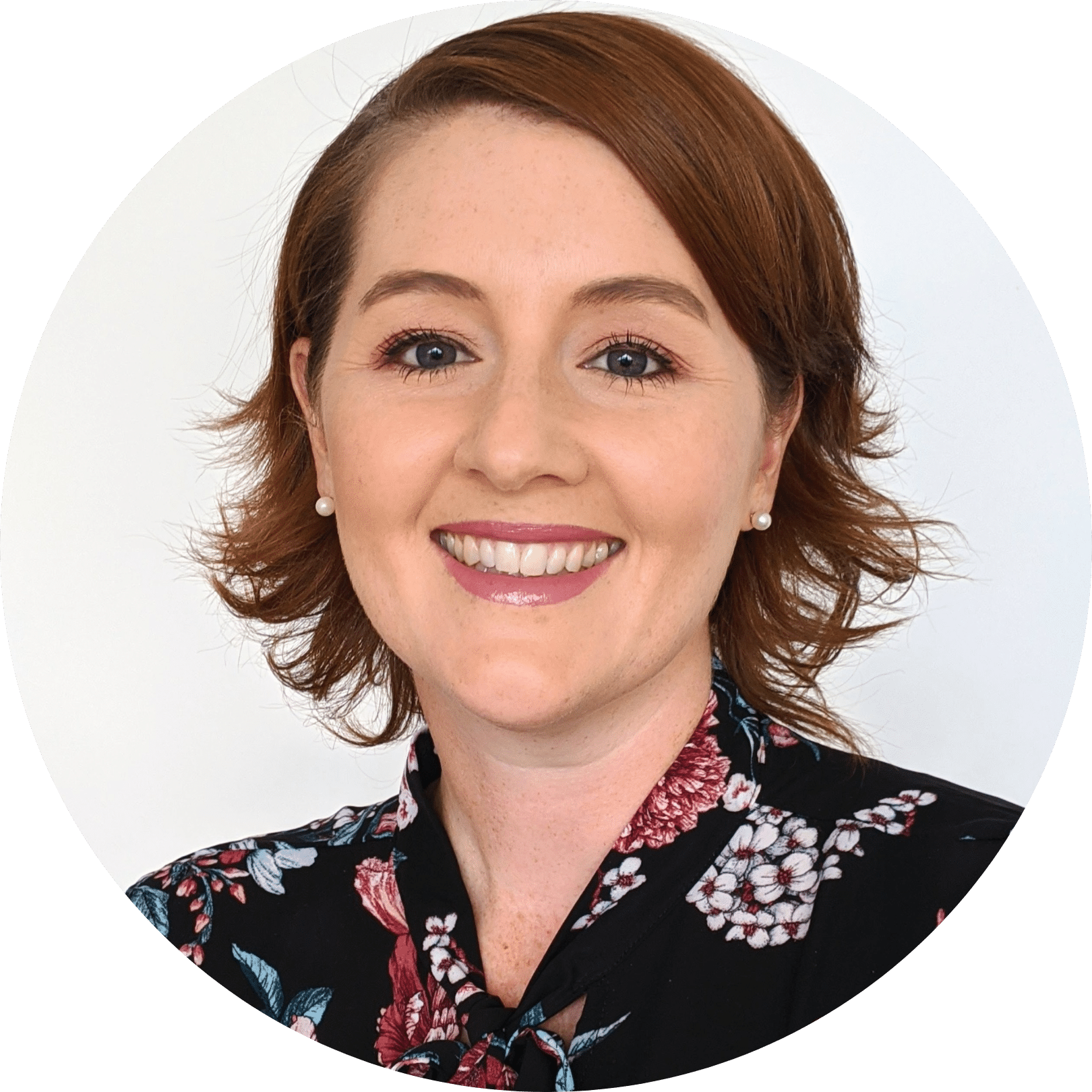
Doctor Megan Penno is the National Project Manager for the Environmental Determinants of Islet Autoimmunity (ENDIA) study and is a Grant-Funded Researcher at the University of Adelaide. Dr Penno was appointed to manage ENDIA at the project’s inception in 2012 and has played an integral role in establishing and expanding the cohort, which completed the recruitment of 1500 mother-infant dyads in late 2019. Drawing on her skills in basic science and ‘omics research, Dr Penno was the first author of the published ENDIA protocol and developed the sample and data collection strategies that underpin all investigations involving ENDIA participants.
Recap Presenters
(not otherwise listed)
Professor Elizabeth Davis, MBBS FRACP PhD

Professor Elizabeth Davis has had a career of integrating clinical care and diabetes research with the goal of improving outcomes for youth with diabetes. She is Head of the Department of Endocrinology at Perth Children’s Hospital (PCH) and co-directs the Children’s Diabetes Centre, a JDRF global centre of excellence, at the Telethon Kids Institute. Professor Davis is a past President of the Australasian Paediatric Endocrine Group. She currently leads the Australasian hub of SWEET, an international paediatric diabetes initiative with the goal of improving outcomes for children with diabetes globally

